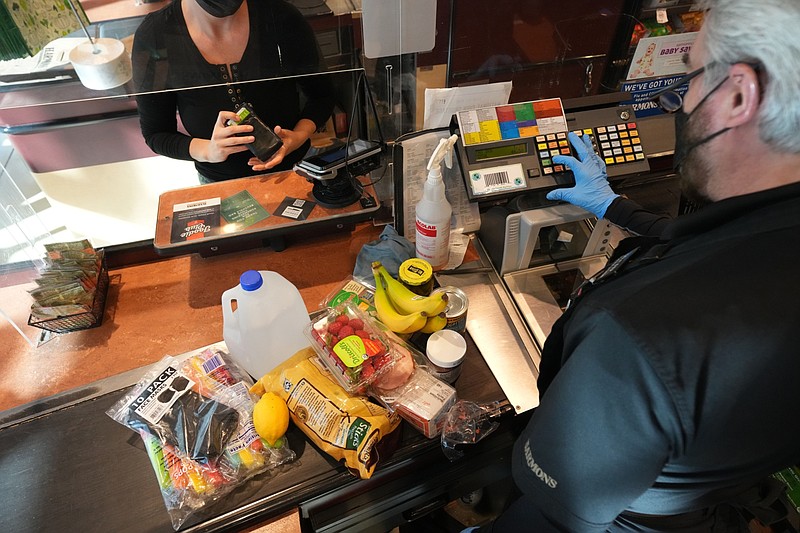U.S. long-term inflation expectations continued to ease in September, helping slightly lift consumer sentiment from the previous month despite growing economic uncertainty.
Consumers expect prices will climb at an annual rate of 2.7% over the next five to 10 years, the lowest since April 2021, according to the final September reading from the University of Michigan. The initial print for the month was 2.8%.
Respondents see costs rising 4.7% over the next year, up slightly from earlier in the month but still near the lowest in a year, data Friday showed.
However, uncertainty over near-term price views reached a four-decade high, given that energy prices are falling but those for food are rising.
"Inflation expectations are likely to remain relatively unstable in the months ahead, as this uncertainty is unlikely to wane in the face of continued global pressures on inflation," Joanne Hsu, director of the survey, said in a statement.
The university's final sentiment index increased to 58.6 from 58.2 in August. The median estimate called for a reading of 59.5 in a Bloomberg survey of economists.
A gauge of current conditions climbed to 59.7, the highest since May. The survey's measure of future expectations was unchanged at 58.
"A mix of weaker equity prices and uncertainty over the inflation outlook clouded consumer moods in the back half of September. A drop in longer-term inflation expectations puts them closer to pre-pandemic levels, but the elevated near-term price outlook and upside risks to core inflation mean no Fed pivot is imminent," economist Eliza Winger wrote in a note for Bloomberg Economics.
While sentiment has improved amid lower gas prices, it's still historically depressed and showing signs of stalling. However, fuel prices are now picking up again, and the Federal Reserve refuses to back down from its all-out fight against inflation, increasing the likelihood of a U.S. recession.
Also in the way of the Fed's efforts is a strong labor market, with robust job creation and low unemployment expected to continue in September, ahead of the government's payrolls report next week. Applications for jobless benefits dropped to a five-month low last week, suggesting robust demand for workers despite economic uncertainty.
Most consumers expect their incomes to rise over the next year, but only 16% expect their gains to exceed inflation, the university's report showed.
An index of buying conditions for durable goods improved in September, but still remains near an all-time low.
A report earlier Friday showed U.S. inflation-adjusted spending ticked up in August while a key price gauge accelerated by more than forecast, underscoring consumers' resilience.
consumers

